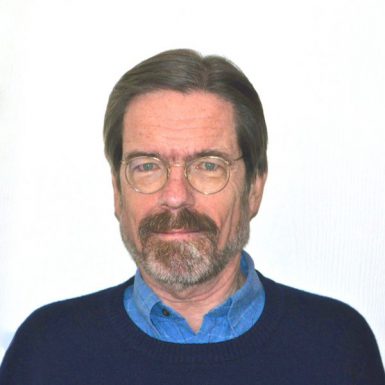Reuters editor details risks and rewards of religion reporting

Tom Heneghan, Reuters’ first and only religion editor, kicked off the Representing Religion Symposium on Tuesday in the Indiana Memorial Union. The symposium is a three-day event where leading scholars and journalists discuss religion and journalism in the hopes of building bridges and fostering understanding.
Heneghan spoke of the pitfalls of reporting on religion and why the type of reporting is so necessary.
“If a Jewish businessman reads an incorrect story about Judaism, then can he really trust us on OPEC or Wall Street?” said Heneghan, demonstrating why accuracy in all areas can affect a news organization’s credibility.
Heneghan, a known expert on religion reporting, didn’t start out that way. Like most journalists, Heneghan started out reporting on politics and seeing all stories in a political frame. This political frame bias, he said, is a problem.
“They use the prism of politics,” he said. “Left or right, win or lose. Religion is not ‘either or,’ it’s ‘but and.’”
Heneghan then shared his own shortcut to learning and teaching how to report on religion: the acronym RISK.
First up is “Religious ignorance.”
“Everyone is religiously ignorant,” he said. “I know a bit about some religions, but not everything. We might not even know all that much about our own traditions.”
He said reporters have to acknowledge that they’re going to make mistakes, but then to do everything in their power to avoid them. He emphasized the importance of fact-checking everything, otherwise problems can arise. He referenced some reporters using “Good Friday” like a greeting or another news source writing that Moses got water from Iraq. (Moses got water from a rock.)
His second is “I” for Internet. He said it’s a curse and a blessing for journalists.
“You can find out things now that would have taken ages and multiple trips to obscure libraries,” he said.
He recommended throwing out the constant political frame and instead looking for ways to frame stories as religious issues. He said to be careful about fake news, especially with its continuing prevalence today. He cited Italian newspapers’ constant (premature) declarations of the pope emeritus’ death as evidence of the pressure to be first, influencing the creation of fake news
“S” is for stereotypes, at least in Heneghan’s opinion. He said sometimes reporters have stereotypes so big they don’t even see it. Fish don’t see the water they’re swimming in, he said.
“When we’re all speaking English, we don’t see the limitations of it,” he said.
As the religion editor, Heneghan was often responsible for getting new words in the Reuters stylebook. He referenced the problems with calling all head coverings for Muslim women “veils” when there are many different versions of the headdress. He spoke of the difficulty getting hijab into the journalism vernacular.
“It took two years to get hijab on the books,” he said. Two years, of course, for Heneghan at Reuters. Muslim men and women were likely trying to get the terminology into AP style for many more years.
Finally, Heneghan finished his acronym with “K” — knowledge. He said reporters have to know that religion is a lived thing, not just what’s in the books. Journalists love to pin people down, but oftentimes that’s not possible — or productive — with religious leaders.
“Religious figures aren’t into sound bites,” he said, as opposed to politicians. “They might have to go back and clarify things.” Heneghan said with religion reporting, the “gotcha” is often not the point, it’s understanding and learning. But, he said, a gotcha moment is always fun.
He ended with some general advice about religions reporting. He said although religion reporting is hard, it will always be worth it.
“I always tell people religion is not a noun, it’s a verb,” Heneghan said. “Sometimes it’s through institutions, so it looks like a noun — but it’s not.”

